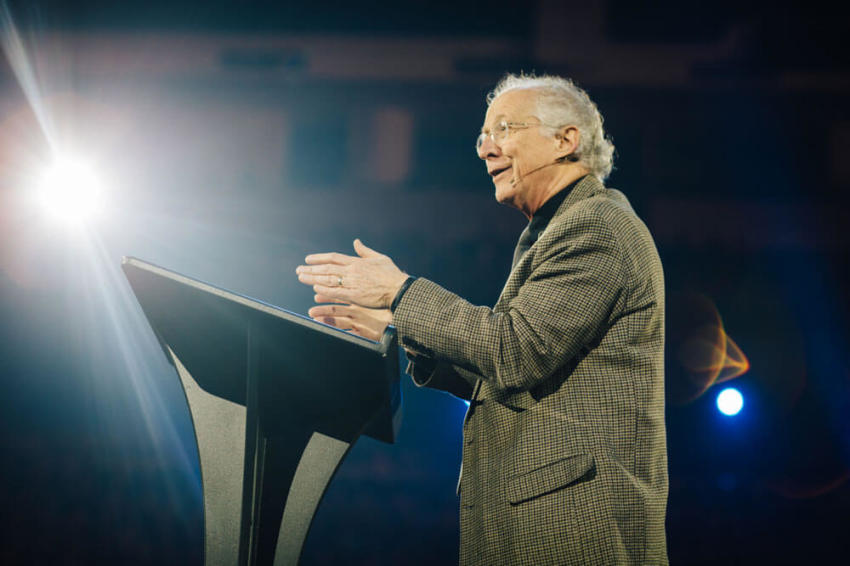John Piper warns Christians against critical race theory that makes god of self

Theologian John Piper weighed in on critical race theory, describing it as making a god of oneself, but also cautioned believers not to wrongly place that label on others for voicing their concerns.
In a two-part installment on his Desiring God podcast, the Reformed theologian explained that it's vital to have honest conversations about racial injustices and not get lost in labels that are assigned as the theory is scrutinized and contested in culture.
Piper said that an African American pastor from Philadelphia he recently spoke with said he had to look up what critical race theory even was after having been told he was a captive to it when he said something needed to change following the death of George Floyd while in police custody.
“I’m being given a label that I don’t really want to be talking about. I want to be talking about the death that is in the street, and the disparities like COVID having a disproportionate impact on people of color. We see these disparities across education, health care, economics. I would rather talk about that. But any time you talk about that in Christian circles, you are given this title [of critical race theory]," the pastor said, as quoted by Piper.
“More energy is being devoted to the tethering of critical race theory to what we are saying than is being devoted to the problem of racism itself,” the pastor said. "The problem is that the church is being brought ethical concerns but responding epistemologically, like asking a man who tells you he is bleeding: "How did you come to that conclusion?"
Piper advised that "Christians should be so careful not to slander a brother with pejorative labels that we go the extra mile to make sure we know whether his actions and statements are really owing to his infection with the lethal aspects of critical race theory or not."
Yet, the theory deserves criticism because it is fundamentally self-centered, he added.
The theory is causing such division among Christians because "in its mainstream expression — it is another manifestation of the age-old enslavement of the fallen human heart to self-deification (“I will be my own god”), and self-definition (“I will define my own essential identity”), and self-determination (“I will decide my own truth and my own morality, without deference to any authority outside myself”)," Piper continued.
The theologian went on to explain how critical theorists attempt to explain society viewed through the lens of interconnected groups and power dynamics, particularly how it posits who constitutes an oppressor and who is oppressed.
While legitimate concerns about power relationships might be at the start of Critical Theory, it has morphed into a wide variety of grievances all centered around the identity of one oppressor group and the privilege they wield over an oppressed group, he explained. critical race theory, then, aims to deal with the power issues that have been historically in play among racial groups.
Piper's deepest objection to the theory is that at its root, it holds that "a person’s essential identity is self-chosen, self-constructed, not God-designed or God-given."
"Or another way to say it would be that, when it comes to our own identity, we are our own god. We do not acknowledge or submit to any divine truth or morality as above us, constraining or limiting our own self-definition, self-construction," he said.
"When God is out of the picture, what’s left to determine right and wrong, and what our true identity is, is personal autonomy (self-definition, self-determination). And if you reject such personal autonomy as the final arbiter of right and wrong, then within the framework of God-evicting critical race theory, the only explanation left for your behavior is your own will to power."
Critical race theory also fails because it confronts challenges in a way that is ultimately futile because it diminishes the work of Christ, the theologian said.
"Inside critical race theory, God is small and negligible. The Bible is small and negligible. Truth is small and negligible. And evil is big, and there is no answer for it. It is a hopeless path."
"But inside that infallible word called the Bible, there is an absolutely explosive redemption, and blood-bought reconciliation, and Christ-exalting harmony. And the failures of the church, historically and today, cannot cancel it."
The rising influence of critical race theory has become an issue within many evangelical churches and has caused a stir within the nation's largest Protestant denomination, the Southern Baptist Convention.
In February, the Conservative Baptist Network was launched in part because of Resolution 9 at the 2019 annual meeting, when messengers adopted a measure stating that critical race theory and intersectionality are useful analytical lenses.
Despite the wording of the resolution, which held that the theories "should only be employed as analytical tools subordinate to Scripture — not as transcendent ideological frameworks," the network founders maintain that the inroads these lenses have made into Southern Baptist life are paving the way to greater doctrinal compromise and spiritual deception.



























